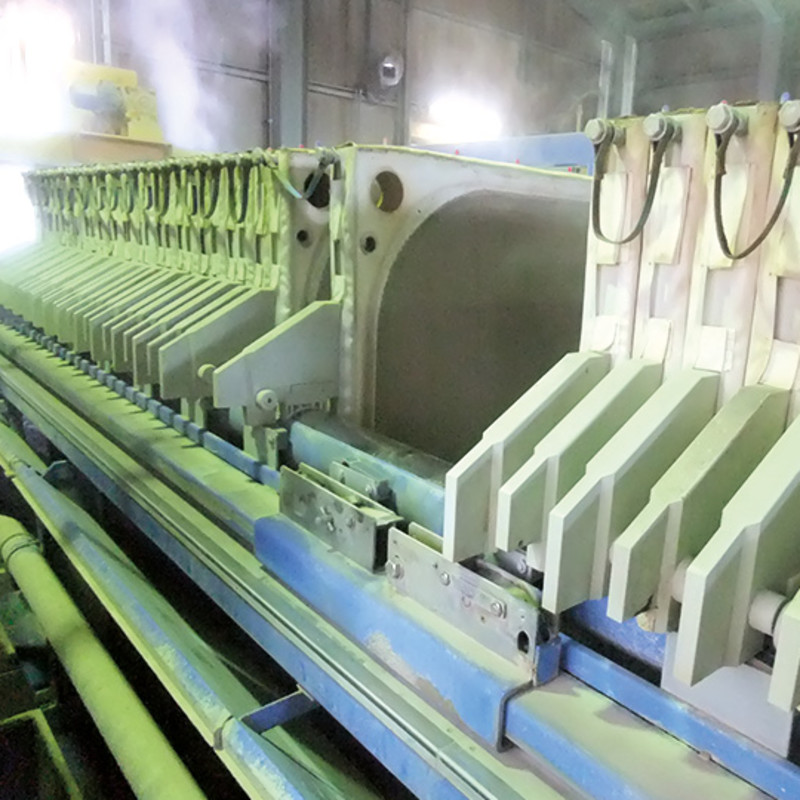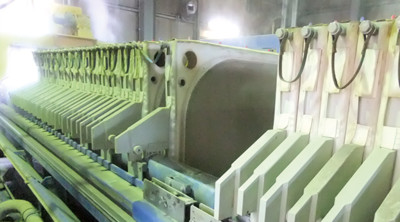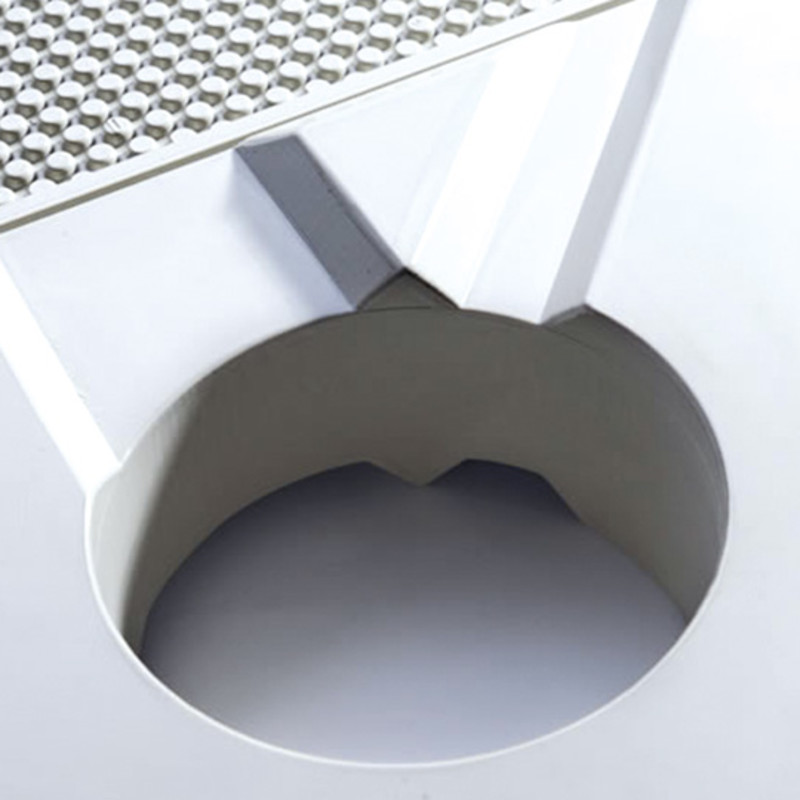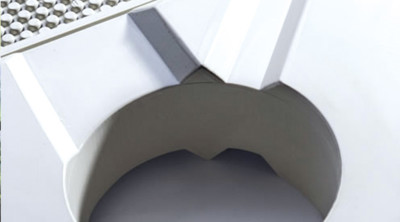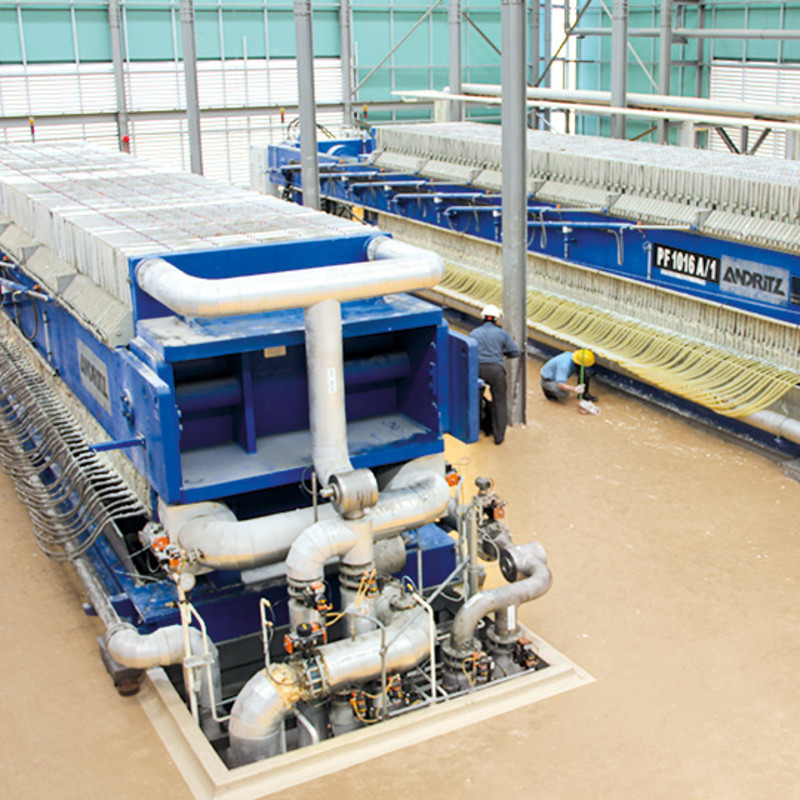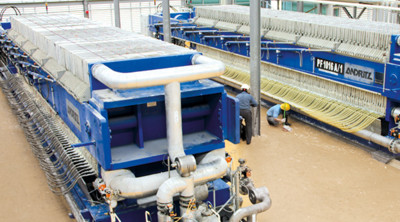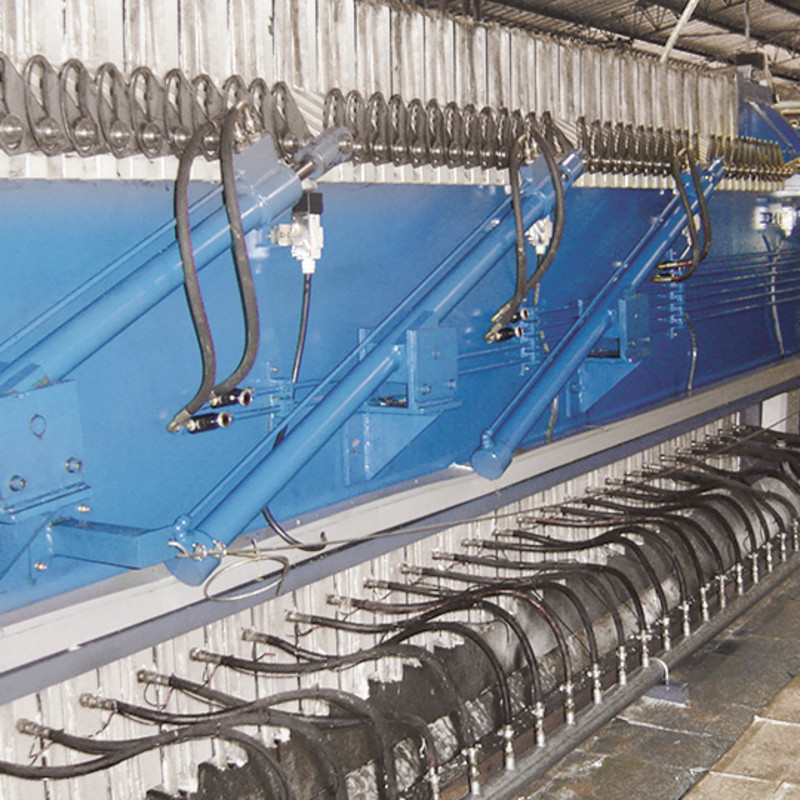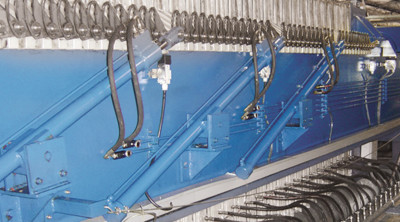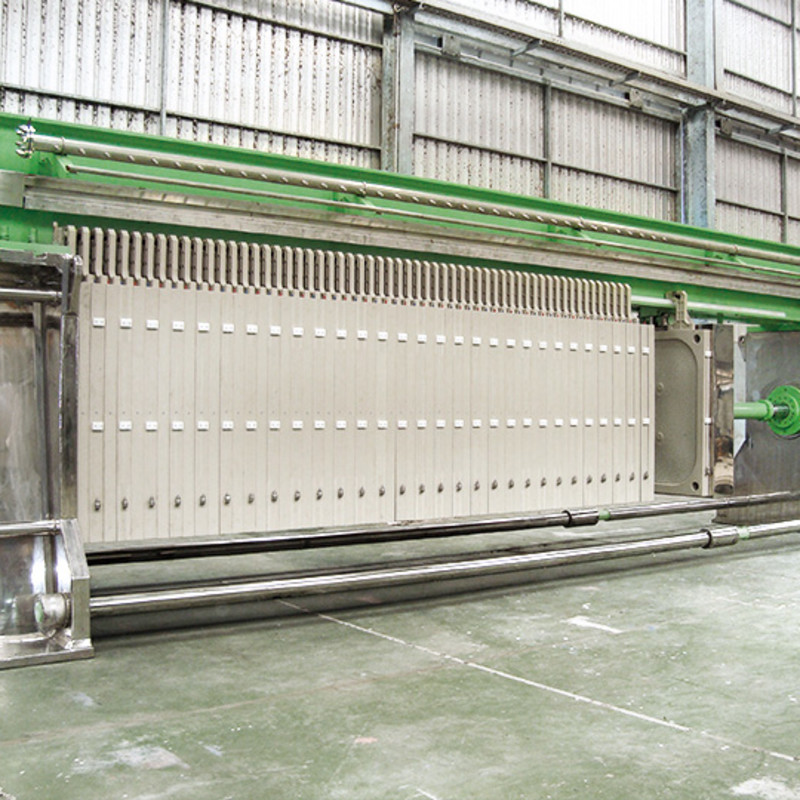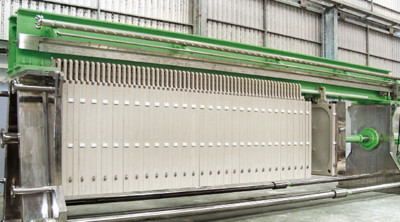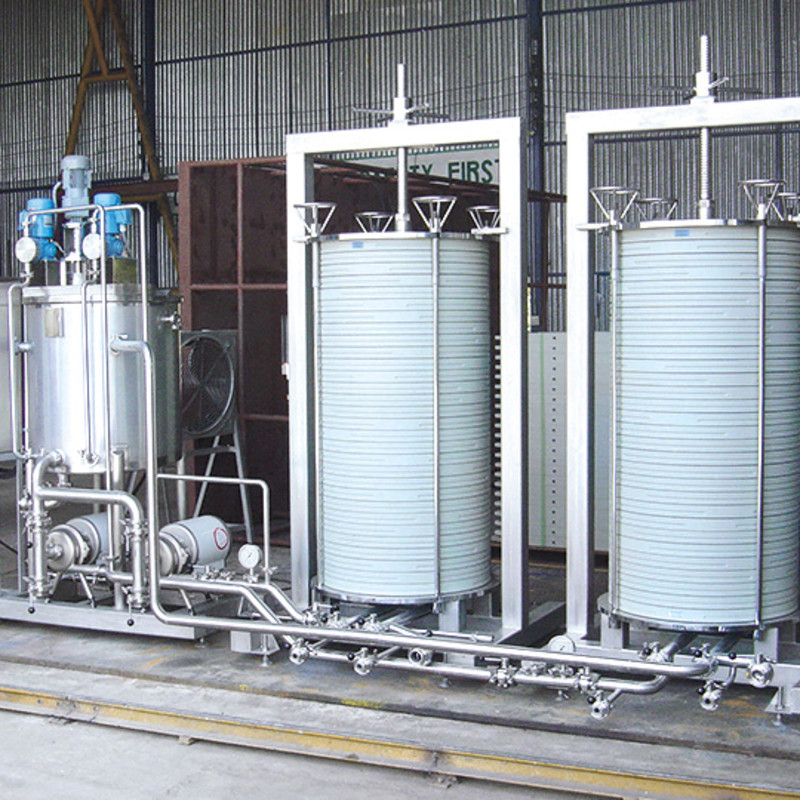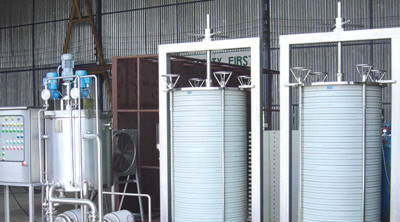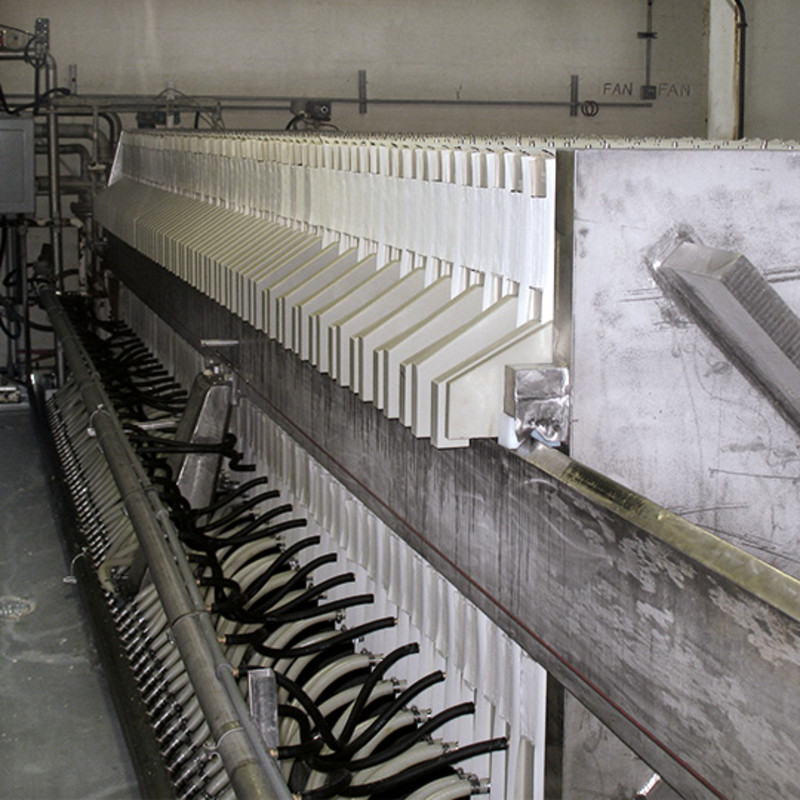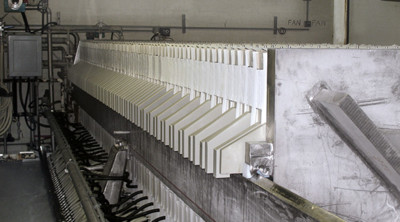Sugar industry
The sugar industry requires a minimum TS content of 70% at a maximum 0.5% of residual sugar within the filter cake. Such high rates of extraction need to be achieved using wash-water volumes lower than cake volumes. Membranes are subjected to extreme stresses during 24-hour operational periods with 12- to 30-minute cycle times and temperatures of between 80°C and 85°C. Klinkau membrane filter plates in their welded and replaceable versions are being successfully used in the sugar industry.
Membrane filter plates are now also being used for filtering sugar substitutes such as aspartame. This is a specialized application performed at extremely low temperatures. The membrane filter also needs to be made from a highly chemically resistant material as the slurries to be filtered can contain very high levels of hydrochloric acid.


